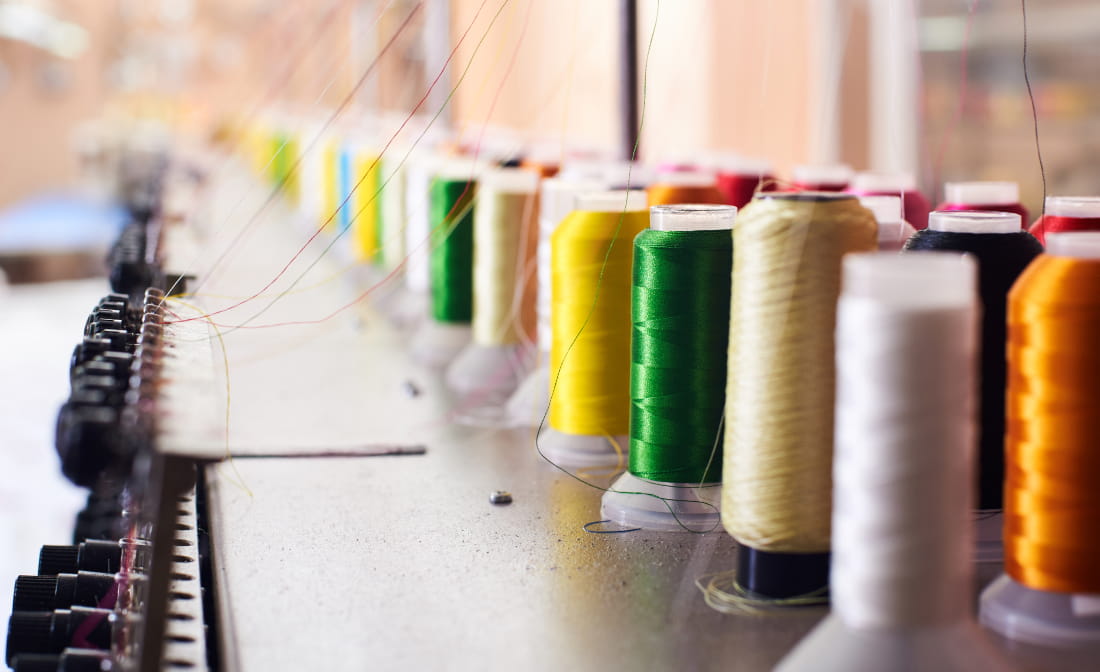In 2020, the country ranked as the fourth largest exporter of textiles worldwide. Despite the negative impact of the COVID-19 outbreak, Turkey is still showing signs of growth in the industry.
Due to increasing consumer expectations and the need for sustainable products, textile companies around the world are forced to restructure their business processes and invest in technological solutions. Turkey is no exception. To compete with major textile exporters like China and India, companies in Turkey have to move towards innovation.
Production Tracking
The production processes in the textile and apparel industry are quite complex and confusing. For example, production processes can’t be tracked by only relying on workstation monitoring. The workstation-based cost calculations are often inaccurate and don’t display the real picture.
There is another alternative called «lot tracking». Unfortunately, it also has its disadvantages for textile production tracking. Lot tracking allows users to assign identification labels to production runs called «lots» that can be tracked throughout the entire supply chain. However, keeping track of stocks (raw materials and products) can be quite challenging. The reason is that thousands of new stock cards are added to the system every season in companies that prepare seasonal collections. When the variants are taken into account, a hundred thousand new stocks should be considered by the system as well.
Since the industry is very dynamic and developing quickly, textile companies in Turkey need a solution that can respond promptly to their requests. An ERP solution specifically designed for textile companies would be a great fit. 1Ci ERP for apparel and textile, for example, allows to easily track stock levels and manage inventory of both raw materials and finished products in the system every season. It’s especially crucial when companies prepare seasonal apparel collections and thousands of new lots are added.
Integration with Technologically-advanced Machines
To thrive in the textile industry, it’s now not enough to simply make high-quality clothing — it’s already taken for granted. In addition to that, companies need to implement up-to-date solutions for greater efficiency, automation and integration with all machines and tools in factories and warehouses. Therefore, the amount of investments in new machines has significantly increased, especially in the field of production. In recent years, industry 4.0 investments have been gaining momentum. These investments also increase the need for a flexible structure in ERP software.
Equipment varies according to the type of textile production. However, the main equipment required for ERP implementation is the handheld terminal. The machines used in production differ according to the textile sector. While implementing 1Ci ERP, it’s possible to integrate the system with manufacturing equipment such as RFID equipment, robots, conveyor systems and so on.
1Ci partner DND has helped Gelal Corap Sanayi A.S., a leading socks manufacturer in Turkey, to implement 1C:Enterprise and integrate it with industrial robots. As a result, labor cost was reduced by 10%. Moreover, the implementation of the industrial machines management module allowed achieving 7-8% productivity improvement.
Monitoring from Raw Material Input to Stock Output
Another key factor to succeed in the textile industry is to implement a fully integrated system that has access to all processes — from raw material input to stock output.
1C:Drive targets the production processes and automates production as a whole with warehouse management and CRM systems. With its multi-platform support and fast development infrastructure, it offers an ERP technology that can respond quickly to all customer needs.
Package applications are often not enough, especially for medium-sized textile companies. Therefore, 1C:Drive, as a project application, is a good fit for them. It’s a cost-effective and multifunctional solution that can be designed specifically for every company’s needs.
For instance, we implemented the solution for Seçil Store, a leading manufacturer and textile production company in Turkey. As a result, the company got an integrated end-to-end system that both monitors internal processes in manufacturing and provides access to contractors’ manufacturing data.
Bottom Line
1Ci ERP software for the textile industry makes inventory management more efficient, reduces production time, takes control of production tracking, reduces labor and other related costs and eventually increases customer satisfaction. You can read stories about successful implementation and significant results that textile companies achieved with the help of 1Ci solutions here.
